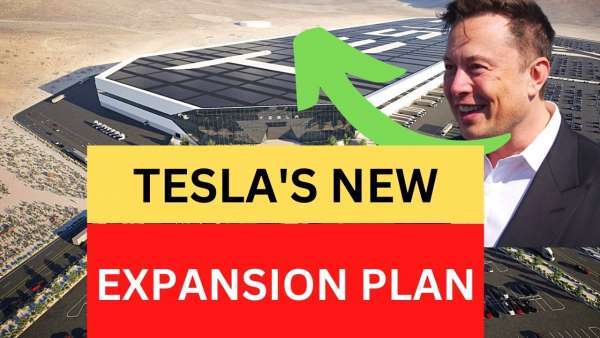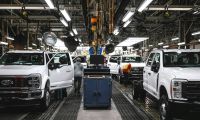
The application for the next expansion of the Tesla factory in Gruenheide arrived yesterday at the Brandenburg State Environmental Protection Agency. One million cars will be produced, but more water is not needed!
The next expansion of the Tesla factory in Gruenheide, Germany is one of the most anticipated developments in the automotive industry today. Tesla's application for this expansion has been awaited by many, and it finally arrived yesterday at the Brandenburg State Environmental Protection Agency, Brandenburg's RBB Radio reports.
The proposed Tesla Giga Berlin expansion aims to build new facilities for battery cells, power electronics, and electric motors, with an investment of approximately 2.5 billion euros. This expansion is set to create 5,000 new jobs and increase the production capacity of the factory from 500,000 to one million electric vehicles per year.
This announcement comes as the current factory in Gruenheide is still under construction, with production of the Model Y scheduled to ramp up further later this year. Tesla has already faced several setbacks due to regulatory issues and protests by environmental groups, but it has persevered and continued to work towards its goal of establishing a strong foothold in Europe.
The new application for expansion will now be reviewed by the Brandenburg State Environmental Protection Agency, which will assess the environmental impact of the project. This assessment will likely take several months, as it involves a thorough analysis of the potential effects on the surrounding ecosystem.
One of the primary concerns regarding the expansion of the factory is its potential impact on the water supply. The factory is located in a forested area that is rich in wildlife and biodiversity, and there are concerns that the factory's water usage may have a detrimental effect on the local ecosystem.
However, Tesla has stated that it will not require any additional water supply for the expansion. This claim has been met with skepticism by some environmental groups, who argue that the expansion of the factory will inevitably lead to increased water usage.
Despite these concerns, the expansion of the Tesla factory in Gruenheide has been widely welcomed by local and national authorities, who recognize the economic benefits that it will bring to the region. The factory is expected to create thousands of new jobs and stimulate the local economy, which has suffered in recent years due to the decline of traditional industries.
Moreover, Tesla's commitment to renewable energy and sustainable production methods has been praised by environmentalists, who recognize the company's efforts to reduce its carbon footprint and promote clean energy. Tesla has set ambitious goals for itself in this regard, and it is widely regarded as a leader in the push towards a more sustainable future.
In conclusion, the application for the next expansion of the Tesla factory in Gruenheide is a significant development in the automotive industry. It represents a major investment in the region, and it has the potential to create thousands of new jobs and stimulate economic growth. However, it is also important that the environmental impact of the project is thoroughly assessed and managed, to ensure that it does not have a detrimental effect on the surrounding ecosystem. With proper planning and management, the expansion of the Tesla factory in Gruenheide could be a model for sustainable industrial development in the 21st century.
Furthermore, the expansion of the Tesla factory in Gruenheide is an important milestone for the electric vehicle industry in Europe. Tesla is already a dominant player in the US electric vehicle market, but it has faced significant challenges in Europe due to a lack of infrastructure and government support. The expansion of the factory in Gruenheide will enable Tesla to significantly increase its production capacity and better serve the growing demand for electric vehicles in Europe.
The German government has been supportive of Tesla's expansion plans, recognizing the potential economic benefits that it will bring to the region. The government has also recognized the need to transition to a low-carbon economy, and it sees Tesla as an important partner in this effort.
Tesla has been a pioneer in the electric vehicle industry, and it has pushed the boundaries of what is possible in terms of range, performance, and affordability. However, it has also faced criticism for its business practices and its treatment of workers.
Tesla has responded to these criticisms by committing to fair labor practices and sustainable production methods. It has also pledged to invest in local communities and support the transition to renewable energy.
The expansion of the Tesla factory in Gruenheide is a testament to the company's commitment to sustainable growth and its vision for a better future. It represents a significant investment in the region and a major milestone in the transition to a low-carbon economy.
Moreover, it is a clear signal that the electric vehicle industry is here to stay and will continue to grow in the coming years. With proper management and regulation, the expansion of the Tesla factory in Gruenheide could be a model for sustainable industrial development and a key driver of economic growth in the region.
Armen Hareyan is the founder and the Editor in Chief of Torque News. He founded TorqueNews.com in 2010, which since then has been publishing expert news and analysis about the automotive industry. He can be reached at Torque News Twitter, Facebok, Linkedin and Youtube.
Set Torque News as Preferred Source on Google





